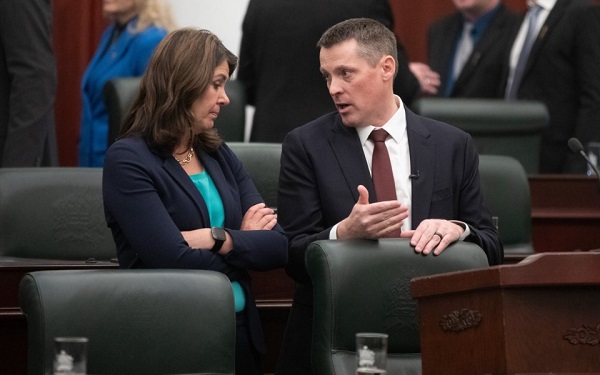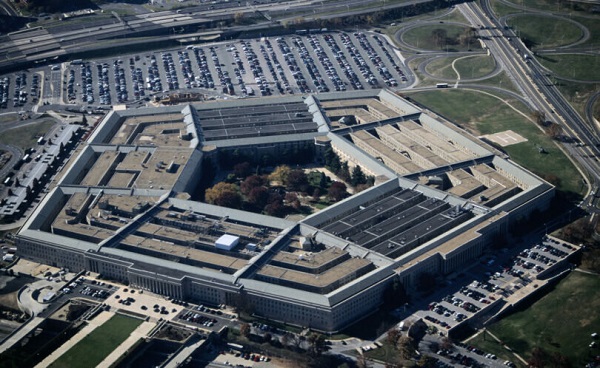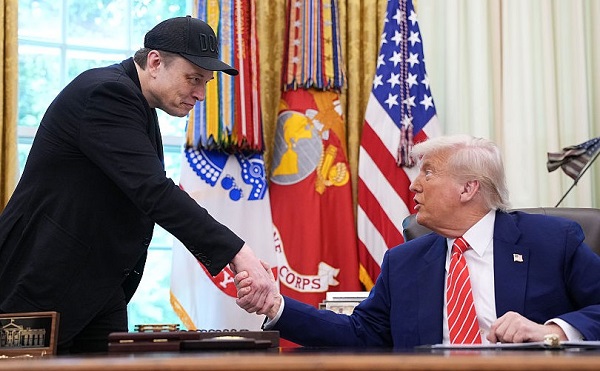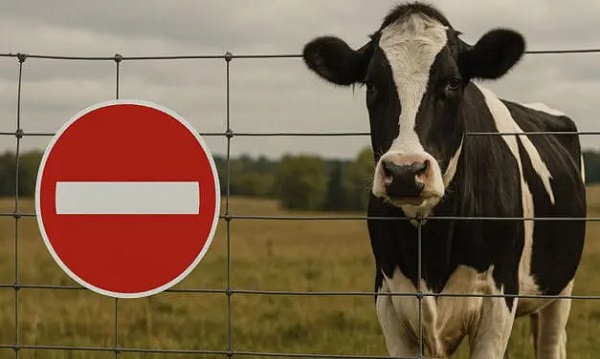Alberta
Provincial Budget 2025: Meeting the challenge

To help Albertans with the high cost of living, Budget 2025 delivers on the promised tax cut that will save Albertans hundreds of dollars starting this year. The new eight per cent personal income tax bracket for income up to $60,000 is starting two years ahead of schedule and will save Albertan families up to $1,500 in 2025.
To meet the needs of a population that has grown rapidly in the last few years, Budget 2025 also makes the highest-ever investment in health care and education while moving forward with the Alberta government’s commitment to build schools and classroom spaces faster. The budget continues to support vulnerable Albertans and keep communities and provincial borders safe while supporting the economy, communities and sectors outside the oil and gas industry.
“Budget 2025 is a budget of tough but measured choices that meet the needs of Albertans and maintains our Alberta advantage. It cuts taxes, steadfastly supports public services and solidifies our economic foundation so it can withstand future headwinds.”
Budget 2025 takes a cautious approach in its economic outlook, reflecting the high risk of a Canada-U.S. trade conflict and the potential significant impact on the Alberta economy. The outlook assumes a moderate trade conflict where Canada will face an average 15 per cent tariffs on all goods, while energy products will face a 10 per cent tariff. Alberta will continue to work with federal, provincial and territorial partners to find solutions. Even in light of tariffs, the province expects moderate but continued growth in oil production and investment to keep the province’s economic engine humming. Alberta’s responsible crude oil exports are expected to continue to meet critical U.S energy needs, and the Trans Mountain Pipeline expansion will provide more export capacity for producers.
Investment will continue in existing major projects that are driving activity in industrial building construction, including Dow’s Path2Zero project, Air Products’ new hydrogen facility and Imperial Oil’s Strathcona Refinery renewable diesel expansion project.
Alberta’s housing market is expected to stand out as a bright spot in the economy as homebuilders work to meet the needs of a growing population A slower population growth will help the labour market gradually rebalance over the next few years.
While the province is facing significant economic uncertainty and revenue volatility, the government remains committed to making prudent spending decisions to keep operating expense growth below population growth plus inflation and to sustainably deliver important programs and services to Albertans and Alberta businesses.
Budget 2025 invests:
- $9.9 billion in operating expenses for education, an increase of 4.5 per cent from 2024-25, to help with enrolment pressures, hire more teachers and other educational staff, and support complex classrooms and students.
- $2.6 billion over three years for educational (K-12) infrastructure, an increase of $505 million or 23.9 per cent from Budget 2024. This funding will support the construction of more than 200,000 new and modernized student spaces over the next seven years (almost 90,000 within the next four years).
- $28 billion in operating expense, an increase of $1.4 billion or 5.4 per cent, across the refocused health care system including:
- $22.1 billion to health care to improve access to quality health services close to home, prioritize patients, build capacity at hospitals and rural facilities, expand surgeries and compensate and retain health professionals.
- $1.7 billion for implementing the compassionate intervention framework and Recovery Alberta Services.
- $3.8 billion to focus on making the full continuum of care available to all Albertans, from assisted living, home care and community care, to housing and social supports with wraparound social services.
- $1.3 billion for operating expense for Public Safety and Emergency Services, an increase of 3.7 per cent from 2024-25, to support Alberta Sheriffs, Correctional Services and emergency management in the work to keep Alberta communities safe and secure the southern border.
- $1.6 billion, or a six per cent increase from last year, for Children and Family Services to strengthen the programs vulnerable children and families rely on.
- $6.2 billion, or an 8.8 per cent increase from 2024-25, to support core social programs, including a short-term bump to support more people affected by potential U.S. tariffs and rising grants for housing programs.
- Overall, Budget 2025’s Capital Plan includes $26.1 billion over three years, an increase of 4.4 per cent or $1.1 billion more than Budget 2024, to meet the challenge of growth and build and enhance schools, hospitals, roads and bridges in the province. The plan is projected to support an average of 26,500 direct and 12,000 indirect jobs annually through 2027-28.
The province is also continuing to focus on building the Heritage Fund to $250 billion by 2050. The fund was valued at $25 billion in the third fiscal quarter of 2024-25 and is expected to grow to about $27 billion by the end of the fiscal year. A renewed Heritage Fund that earns money year over year will secure a resilient and prosperous Alberta for generations to come and lessen the province’s reliance on natural resource revenues. An independent board of directors and a new Heritage Fund Opportunities Corporation will unlock access to new opportunities and partnerships with global sovereign wealth funds.
Revenue
- Total revenue in 2025-26 is forecast at $74.1 billion, a decrease of $6.6 billion from the 2024-25 forecast of $80.7 billion. Total revenue is forecast to grow to $77.4 billion in 2026-27 and $80 billion by 2027-28, with broad-based revenue growth led primarily by income taxes.
- The decrease in 2025-26 comes mainly from a $4.4 billion drop in non-renewable resource revenue, driven by an anticipated decline in oil prices. This revenue source is forecast at $17.1 billion in 2025-26, compared to the $21.5 billion forecast for 2024-25.
- Revenue from personal income taxes is estimated to decrease to $15.5 billion in 2025-26, down from the $16.1 billion at the third quarter, due to the new eight per cent income tax bracket and negative impacts associated with potential tariffs. Personal income tax revenue is forecast to grow moderately in the following two years as more people continue to move to Alberta.
- Corporate income tax revenue is estimated at $6.8 billion in 2025-26, down $586 million from the third-quarter forecast for 2024-25, but rising over the next two years.
Expense
- Total expense in 2025-26 is forecast at $79.3 billion, an increase of $4.4 billion or 5.9 per cent from the 2024-25 third quarter forecast.
- Total expense is expected to be $79.8 billion in 2026-27 and $82 billion in 2027-28, or an increase of about 1.7 per cent per year.
- Operating expense is estimated at $64.3 billion, an increase of $2.2 billion or 3.6 per cent from the 2024-25 third quarter forecast.
- Operating expense grows to $64.8 billion in 2026-27 and $66.5 billion in 2027-28, an average increase of 1.7 per cent per year.
- A contingency of $4 billion will help to provide government with more flexibility to address unforeseen implications of increased economic uncertainty as well as compensation expense for collective bargaining currently underway.
Deficit
- A deficit of $5.2 billion is forecast for 2025-26.
- The deficit is forecast to drop to $2.4 billion and $2 billion for 2026-27 and 2027-28, respectively.
- The government’s fiscal framework includes allowable exceptions for when the government can run a deficit, including when there is a significant drop in revenue.
- This deficit is largely the result of falling non-renewable resource revenues and increases in costs necessary to provide world-class services to Albertans.
Debt
- Debt servicing costs are forecast to decrease by $231 million in 2025-26 from the 2024-25 forecast, to $3 billion, as funds pre-borrowed in 2024-25 will be used to repay sizeable debt maturities coming due in early 2025-26.
Economic Outlook
- In 2025, real gross domestic product is expected to decelerate to 1.8 per cent, then 1.7 per cent in 2026.
- Population growth is expected to moderate, growing at 2.5 per cent in the 2025 census year, down from the record 4.4 per cent growth in 2024. Growth will shift down to 1.4 per cent over the following two years, then 1.6 per cent in 2028.
Energy and economic assumptions, 2025-26
- West Texas Intermediate oil (USD/bbl) $68
- Western Canadian Select @ Hardisty (CND/bbl) $73.10
- Light-heavy differential (USD/bbl) $17.10
- ARP natural gas (CND/GJ) $2.50
- Conventional crude production (000s barrels/day) 519
- Raw bitumen production (000s barrels/day) 3,558
- Canadian dollar exchange rate (USD¢/CAD$) 69.60
- Interest rate (10-year Canada bonds, per cent) 3.10
Related information
Alberta
Alberta Premier Danielle Smith Discusses Moving Energy Forward at the Global Energy Show in Calgary

From Energy Now
At the energy conference in Calgary, Alberta Premier Danielle Smith pressed the case for building infrastructure to move provincial products to international markets, via a transportation and energy corridor to British Columbia.
“The anchor tenant for this corridor must be a 42-inch pipeline, moving one million incremental barrels of oil to those global markets. And we can’t stop there,” she told the audience.
The premier reiterated her support for new pipelines north to Grays Bay in Nunavut, east to Churchill, Man., and potentially a new version of Energy East.
The discussion comes as Prime Minister Mark Carney and his government are assembling a list of major projects of national interest to fast-track for approval.
Carney has also pledged to establish a major project review office that would issue decisions within two years, instead of five.
Alberta
Punishing Alberta Oil Production: The Divisive Effect of Policies For Carney’s “Decarbonized Oil”

From Energy Now
By Ron Wallace
The federal government has doubled down on its commitment to “responsibly produced oil and gas”. These terms are apparently carefully crafted to maintain federal policies for Net Zero. These policies include a Canadian emissions cap, tanker bans and a clean electricity mandate.
Following meetings in Saskatoon in early June between Prime Minister Mark Carney and Canadian provincial and territorial leaders, the federal government expressed renewed interest in the completion of new oil pipelines to reduce reliance on oil exports to the USA while providing better access to foreign markets. However Carney, while suggesting that there is “real potential” for such projects nonetheless qualified that support as being limited to projects that would “decarbonize” Canadian oil, apparently those that would employ carbon capture technologies. While the meeting did not result in a final list of potential projects, Alberta Premier Danielle Smith said that this approach would constitute a “grand bargain” whereby new pipelines to increase oil exports could help fund decarbonization efforts. But is that true and what are the implications for the Albertan and Canadian economies?
The federal government has doubled down on its commitment to “responsibly produced oil and gas”. These terms are apparently carefully crafted to maintain federal policies for Net Zero. These policies include a Canadian emissions cap, tanker bans and a clean electricity mandate. Many would consider that Canadians, especially Albertans, should be wary of these largely undefined announcements in which Ottawa proposes solely to determine projects that are “in the national interest.”
The federal government has tabled legislation designed to address these challenges with Bill C-5: An Act to enact the Free Trade and Labour Mobility Act and the Building Canada Act (the One Canadian Economy Act). Rather than replacing controversial, and challenged, legislation like the Impact Assessment Act, the Carney government proposes to add more legislation designed to accelerate and streamline regulatory approvals for energy and infrastructure projects. However, only those projects that Ottawa designates as being in the national interest would be approved. While clearer, shorter regulatory timelines and the restoration of the Major Projects Office are also proposed, Bill C-5 is to be superimposed over a crippling regulatory base.
It remains to be seen if this attempt will restore a much-diminished Canadian Can-Do spirit for economic development by encouraging much-needed, indeed essential interprovincial teamwork across shared jurisdictions. While the Act’s proposed single approval process could provide for expedited review timelines, a complex web of regulatory processes will remain in place requiring much enhanced interagency and interprovincial coordination. Given Canada’s much-diminished record for regulatory and policy clarity will this legislation be enough to persuade the corporate and international capital community to consider Canada as a prime investment destination?
As with all complex matters the devil always lurks in the details. Notably, these federal initiatives arrive at a time when the Carney government is facing ever-more pressing geopolitical, energy security and economic concerns. The Organization for Economic Co-operation and Development predicts that Canada’s economy will grow by a dismal one per cent in 2025 and 1.1 per cent in 2026 – this at a time when the global economy is predicted to grow by 2.9 per cent.
It should come as no surprise that Carney’s recent musing about the “real potential” for decarbonized oil pipelines have sparked debate. The undefined term “decarbonized”, is clearly aimed directly at western Canadian oil production as part of Ottawa’s broader strategy to achieve national emissions commitments using costly carbon capture and storage (CCS) projects whose economic viability at scale has been questioned. What might this mean for western Canadian oil producers?
The Alberta Oil sands presently account for about 58% of Canada’s total oil output. Data from December 2023 show Alberta producing a record 4.53 million barrels per day (MMb/d) as major oil export pipelines including Trans Mountain, Keystone and the Enbridge Mainline operate at high levels of capacity. Meanwhile, in 2023 eastern Canada imported on average about 490,000 barrels of crude oil per day (bpd) at a cost estimated at CAD $19.5 billion. These seaborne shipments to major refineries (like New Brunswick’s Irving Refinery in Saint John) rely on imported oil by tanker with crude oil deliveries to New Brunswick averaging around 263,000 barrels per day. In 2023 the estimated total cost to Canada for imported crude oil was $19.5 billion with oil imports arriving from the United States (72.4%), Nigeria (12.9%), and Saudi Arabia (10.7%). Since 1988, marine terminals along the St. Lawrence have seen imports of foreign oil valued at more than $228 billion while the Irving Oil refinery imported $136 billion from 1988 to 2020.
What are the policy and cost implication of Carney’s call for the “decarbonization” of western Canadian produced, oil? It implies that western Canadian “decarbonized” oil would have to be produced and transported to competitive world markets under a material regulatory and financial burden. Meanwhile, eastern Canadian refiners would be allowed to import oil from the USA and offshore jurisdictions free from any comparable regulatory burdens. This policy would penalize, and makes less competitive, Canadian producers while rewarding offshore sources. A federal regulatory requirement to decarbonize western Canadian crude oil production without imposing similar restrictions on imported oil would render the One Canadian Economy Act moot and create two market realities in Canada – one that favours imports and that discourages, or at very least threatens the competitiveness of, Canadian oil export production.
Ron Wallace is a former Member of the National Energy Board.
-

 International5 hours ago
International5 hours agoIsrael’s Decapitation Strike on Iran Reverberates Across Global Flashpoints
-

 illegal immigration14 hours ago
illegal immigration14 hours agoLA protests continue as judge pulls back CA National Guard ahead of ‘No Kings Day’
-

 Business1 day ago
Business1 day agoThe carbon tax’s last stand – and what comes after
-

 International24 hours ago
International24 hours agoPentagon agency to simulate lockdowns, mass vaccinations, public compliance messaging
-

 International2 days ago
International2 days agoElon Musk expresses ‘regret’ over attacks on Trump that ‘went too far’
-

 Business14 hours ago
Business14 hours agoTrump: ‘Changes are coming’ to aggressive immigration policy after business complaints
-

 Business1 day ago
Business1 day agoOur addiction to dairy supply management is turning Canada into a trade pariah
-

 Business1 day ago
Business1 day ago84% of Swiss hospitals and 60% of hospitalizations are in private facilities, and they face much lower wait times






